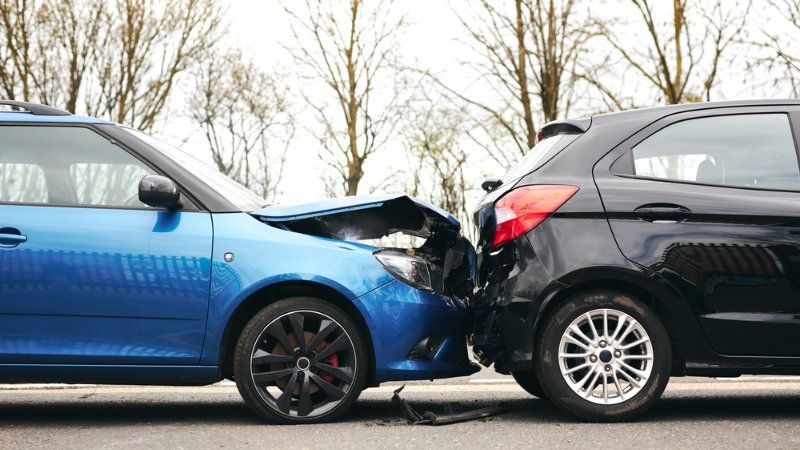What To Do When You Get Rear-Ended
Recent Blog Posts
What To Do When You Get Rear-Ended

Getting rear-ended can be jarring and leave you shaken, confused, and unsure of what to do next. In the chaos after a crash, it's common to feel overwhelmed, especially if you're in pain or worried about your vehicle. Many people aren’t sure what to do when they get rear-ended, particularly in those first few moments after the impact.
Rear-end collisions are among the most common types of accidents and can happen when you least expect them. Even in slower-speed crashes, the consequences can be severe. Injuries from rear-end accidents can lead to long-term pain, ongoing medical care, and lost income from time off work.
At Sargon Law Group, we understand how disruptive these accidents can be. We're here to help you navigate your next steps and pursue the compensation you deserve for your injuries, treatment, and missed wages.
Immediate Steps To Take When You Get Rear-Ended
The scene after a crash, especially a serious one, is often chaotic, but do your best to remain calm. Your first priority should be safety. Do an initial analysis of the scene and the physical status of you and any passengers. If you are in the middle of traffic, move off to the side if you can to prevent further crashes and damage. If anyone seems to have severe injuries, call 911 for immediate assistance.
If it is not a life-threatening situation, call the police so you can fill out an accident report and they can investigate the scene. Exchange information with the other parties involved, but do not admit fault. It’s not always clear who’s at fault in a rear-end collision. If the other party seems angry or if you feel unsafe for any reason, wait for law enforcement, and the officers can deal with obtaining contact and insurance information.
Although the police will investigate the accident and talk to witnesses, you may want to take your own pictures of each vehicle, the surrounding area, and details of the damage. Once things calm down, contact your insurance company and file a claim. Insurance companies usually involve a claims adjuster to investigate the crash and determine which party is at fault.
One thing to avoid when you get rear-ended is to treat the situation as trivial. Even in a minor crash, your vehicle may have hidden physical damage that can be costly to repair. This is also true for your physical condition and that of your passengers. Don’t just assume you’re uninjured or not seriously hurt. Even mild soreness or stiffness could be a sign of a deeper issue.
Medical Needs To Consider After a Rear-End Crash
If you notice any symptoms right after the accident, seek prompt treatment, as some injuries can be severe. However, many symptoms don’t show up until hours or even days later. Even if you feel OK, it is a good idea to make an appointment with your doctor following the crash to ensure you do not have underlying injuries that may be serious. Untreated injuries can lead to more major issues down the road.
Over the following days and weeks, watch for new or worsening symptoms like stiffness, headaches, dizziness, or back pain. These may point to hidden injuries from the crash. Follow through with any recommended care plans and avoid gaps in treatment, as this helps protect both your health and your ability to recover compensation.
Common injuries sustained in a rear-end collision include:
- Whiplash
- Sprained or broken wrist
- Dislocated shoulder
- Fractured vertebrae
- Concussions or head injuries
- Fractured bones
If you receive treatment for any related injury, keep all records of medical care. Also, document any missed workdays due to treatment or healing.
Contact an Attorney When You Get Rear-Ended
The next recommended step after a rear-end crash is to contact an attorney. An experienced legal professional can help you understand your rights, evaluate your options, and handle communication with insurance companies, especially if injuries, vehicle damage, or liability are in question. Working with a qualified law firm that understands local traffic laws, insurance practices, and court systems can make a real difference in the outcome of your case.
At Sargon Law Group, our team of experienced personal injury attorneys can guide you through the legal process and help you understand your options for pursuing compensation for medical care, lost income, and other damages. We’re here to support you every step of the way.
If you're unsure of what to do after being rear-ended, contact Sargon Law Group for a free consultation. Our accident lawyers can review your case and determine if you should take legal action.





